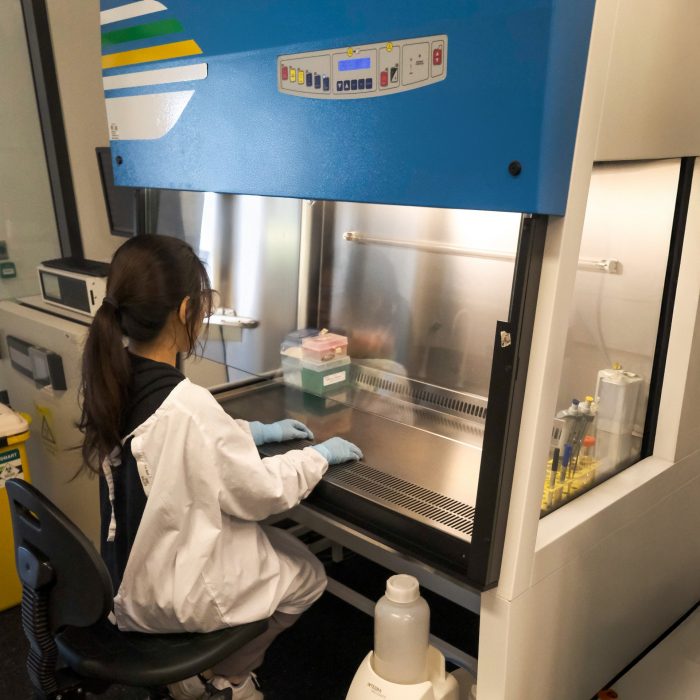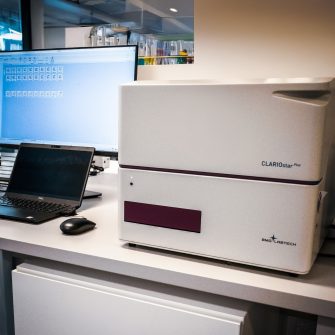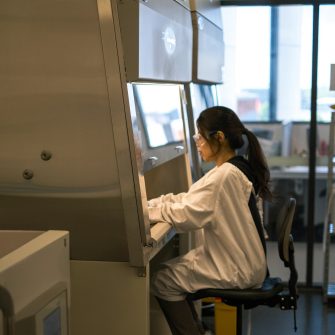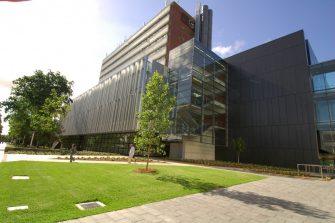Gelaire CytoFAST Cytotoxic Drug Safety Cabinet

Description
The Gelaire CytoFAST Cytotoxic Biosafety Cabinet (BSC) is designed to safely handle hazardous drugs, particularly chemotherapeutic agents, by providing a controlled environment that prevents the release of cytotoxic aerosols or particles, ensuring protection for both the operator and the surrounding environment.
Specifications
The Gelaire Cytotoxic biosafety cabinet allows researchers to safely prepare and administer chemotherapy drugs treatments to their cells. The cabinet is also used for researchers working with primary cell lines, blood work as well as when handling genetically modified organisms (GMOs).
- Cabinet Type: Cytotoxic Safety Cabinet
- Airflow: Unidirectional airflow with HEPA filtration
- Construction: High-quality welded stainless steel
- Filters: Dual HEPA filters for supply and exhaust airflow (H14 mini-pleat HEPA filters with protective hydrophobic membrane on work zone filter).
- Control System: Sentinel™ Microprocessor controller
- Safety Features: Safe filter changing, antimicrobial coating, motorized sash.
- NATA Certification: Certification from Independent Certifier Cytotoxic cabinet is tested to AS1807.22 (DOP test) at 200 mm work opening, at 250 mm opening AS 1807.26.KI-Discus test.
- Compliance: This cabinet complies fully with Australian standard AS 2567:2002, DIN 12980 and EU standard EN 12469.
- Exhaust: High-capacity multi-dihedral exhaust filters for increased life with an activated carbon exhaust filter.
Publishing Microscopy Data Acquired on the Gelaire CytoFAST Cytotoxic Drug Safety Cabinet
-
-
- Cell line
- Passage number
-
- Manufacturer: Gelaire
- Model: CytoFAST
- Type: Cytotoxic Drug Biosafety Cabinet
-
- Airflow type (recirculating/exhaust)
- Safety protocols followed
Acknowledgement:
“The authors acknowledge the facilities and the scientific and technical assistance of Cell Culture Facility (CCF) within the Mark Wainwright Analytical Centre (MWAC) at UNSW Sydney.”
Credit MWAC CCF staff: Feel free to mention MWAC CCF staff who have assisted you with your work! If staff have been involved with your work beyond basic training and support (e.g., project design, complex data/image processing, independent imaging/analysis, manuscript preparation), it may be appropriate to discuss co-authorship with the relevant staff and your supervisor.
-
Applications
Tissue Culture
Primary Cell Culture
GMO Cell Culture
Cytotoxic Reagent Handling
Nanoparticles Handling
Life Science
Biochemistry
Molecular Biology
Instrument location
MWAC Cell Culture Facility
Laboratory 524D Science and Engineering Building (SEB) – E8
Kensington, UNSW, Sydney,
NSW, 2052
Email: CCFAdmin@unsw.edu.au
Access
-
Email
CCFAdmin@unsw.edu.au
Parent facility
Explore more instruments, facilities & services
Our infrastructure and expertise are accessible to UNSW students and staff, external researchers, government, and industry.





